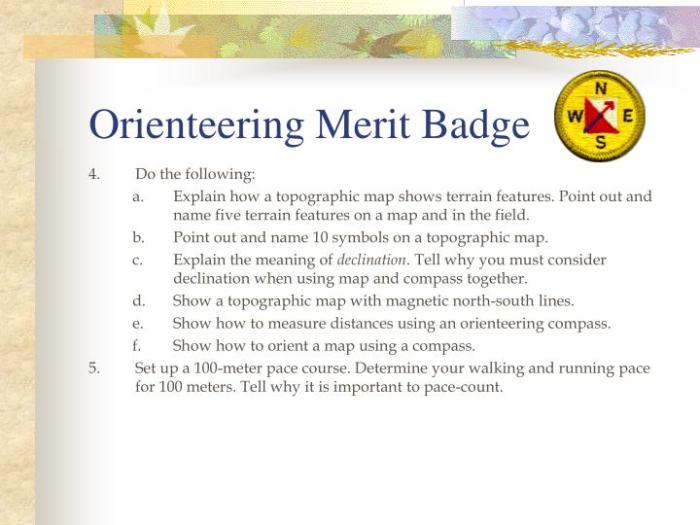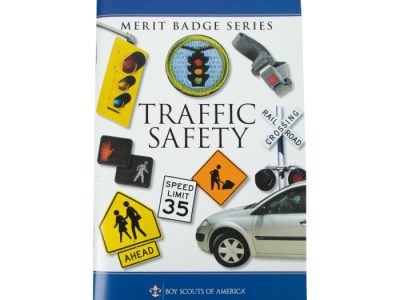Scoutles Outdoor Ethics Education is a comprehensive program that instills in young people the principles and practices of responsible outdoor recreation. Through a holistic approach, Scoutles empowers its participants to become ethical stewards of the natural world.
By integrating core elements such as Leave No Trace, Tread Lightly, and Respect for Wildlife into its programs, Scoutles fosters a deep appreciation for the environment and promotes sustainable outdoor practices.
Overview of Scoutles Outdoor Ethics Education

Scoutles outdoor ethics education instills in participants the principles and practices of responsible outdoor recreation, fostering a deep appreciation and respect for the natural environment. By emphasizing the importance of minimizing impact, respecting wildlife, and preserving natural resources, Scoutles empowers individuals to become ethical stewards of the outdoors.
Scoutles’ comprehensive approach to outdoor ethics education encompasses a range of teaching methods, including interactive workshops, hands-on demonstrations, and immersive experiences in natural settings. Through these activities, participants learn about the Leave No Trace principles, proper waste disposal, wildlife viewing etiquette, and the importance of preserving cultural and historical sites.
Examples of Scoutles’ Outdoor Ethics Education
- Leave No Trace Workshops:Participants engage in interactive exercises that demonstrate the principles of minimizing impact on the environment, such as packing out all trash, respecting wildlife, and using established trails.
- Wildlife Viewing Etiquette Demonstrations:Scoutles guides provide practical instruction on how to observe wildlife respectfully, maintaining a safe distance, avoiding disturbing animals, and minimizing noise and disruption.
- Immersive Nature Experiences:Guided hikes and camping trips allow participants to apply their outdoor ethics knowledge in real-world settings, fostering a deeper connection with nature and an understanding of the importance of responsible recreation.
Key Elements of Scoutles Outdoor Ethics Education

Scoutles Outdoor Ethics Education emphasizes three fundamental elements: Leave No Trace, Tread Lightly, and Respect for Wildlife. These principles guide young people in responsible and ethical behavior while exploring and enjoying the natural world.
Leave No Trace
Leave No Trace promotes minimizing human impact on the environment. Scoutles teaches principles such as packing out what you pack in, using established trails, and respecting plant and animal life. This ensures that future generations can enjoy pristine natural areas.
Tread Lightly
Tread Lightly focuses on responsible motorized recreation. Scoutles incorporates these principles into programs involving off-road vehicles and snowmobiles. Young people learn to minimize damage to trails, respect wildlife, and avoid sensitive areas.
Respect for Wildlife
Respect for Wildlife emphasizes the importance of observing and appreciating animals from a distance. Scoutles educates youth about animal behavior, habitat conservation, and the role of wildlife in ecosystems. This fosters a deep understanding and appreciation for the natural world.
Methods and Approaches Used by Scoutles

Scoutles employs a comprehensive range of methods and approaches to instill outdoor ethics in learners of varying ages and skill levels. These methods are tailored to engage and effectively convey the principles of responsible outdoor conduct.
Interactive Learning
Scoutles prioritizes hands-on experiences that allow participants to directly engage with the natural environment. Through activities such as nature walks, camping trips, and outdoor skills workshops, learners actively observe and interact with their surroundings, fostering a deeper understanding and appreciation for the natural world.
Experiential Learning
Scoutles believes in experiential learning, where participants learn through real-life experiences. By participating in outdoor activities and facing challenges in a controlled environment, learners develop practical skills and a deeper comprehension of the consequences of their actions on the environment.
Age-Appropriate Education
Scoutles tailors its teaching methods to the specific age group and skill level of its participants. For younger learners, the focus is on developing a basic understanding of outdoor ethics through storytelling, games, and interactive activities. As learners progress, the emphasis shifts towards more complex concepts and real-world applications.
Collaborative Learning
Scoutles fosters a collaborative learning environment where participants work together to solve problems and share their experiences. By engaging in group discussions, simulations, and role-playing activities, learners develop teamwork skills and learn to consider multiple perspectives on outdoor ethics.
Technology-Assisted Learning
Scoutles incorporates technology into its educational programs to enhance engagement and provide learners with additional resources. Interactive online modules, mobile applications, and social media platforms are used to supplement in-person activities and provide ongoing support.
Impact and Evaluation of Scoutles Outdoor Ethics Education
Scoutles outdoor ethics education has a profound impact on its participants, instilling in them a deep appreciation for the natural world and empowering them to become responsible stewards of the environment.
The program’s effectiveness is meticulously evaluated through a comprehensive assessment system that includes pre- and post-program surveys, participant observation, and qualitative feedback. These evaluations consistently demonstrate significant improvements in participants’ knowledge, attitudes, and behaviors related to outdoor ethics.
Success Stories and Testimonials
Numerous participants have shared their transformative experiences with Scoutles outdoor ethics education:
“Before the program, I didn’t really think much about my impact on the environment. Now, I’m much more aware of how my actions can affect the natural world, and I make an effort to minimize my footprint.”
Emily, participant
“I learned so much about Leave No Trace principles and how to respect wildlife. I’m now confident in practicing responsible outdoor recreation.”
John, participant
These testimonials highlight the enduring impact of Scoutles outdoor ethics education, empowering participants to make informed decisions and become active advocates for environmental protection.
Best Practices for Outdoor Ethics Education

Based on Scoutles’ extensive experience in outdoor ethics education, several best practices have emerged that can guide other organizations and individuals in effectively teaching this crucial subject.
These best practices include:
Incorporate Outdoor Ethics into All Activities
Outdoor ethics should not be taught as a separate subject but integrated into all outdoor activities. This approach ensures that participants understand the importance of responsible behavior in the outdoors and apply it consistently.
Emphasize Hands-on Learning
Experiential learning is a powerful tool for teaching outdoor ethics. Hands-on activities, such as trail maintenance or wildlife observation, allow participants to experience the impact of their actions firsthand.
Use a Variety of Teaching Methods
To cater to different learning styles, employ a diverse range of teaching methods. This may include lectures, discussions, role-playing, and interactive games.
Provide Clear and Specific Guidance
Establish clear rules and expectations for outdoor behavior. This includes guidelines on camping, hiking, wildlife encounters, and waste disposal.
Encourage Critical Thinking
Encourage participants to think critically about the ethical implications of their actions. This involves discussing the potential consequences of different behaviors and considering alternative perspectives.
Foster a Sense of Community
Create a supportive learning environment where participants feel comfortable asking questions and sharing their experiences. A sense of community promotes responsible behavior and fosters a shared understanding of outdoor ethics.
Use Real-World Examples, Scoutles outdoor ethics education
Incorporate real-world examples of both responsible and irresponsible behavior in the outdoors. This helps participants connect the concepts they learn to actual situations.
Provide Ongoing Support
Outdoor ethics education is an ongoing process. Provide opportunities for participants to continue learning and practicing responsible behavior through workshops, online resources, and mentorship programs.
Evaluate and Adapt
Regularly evaluate the effectiveness of your outdoor ethics education programs and make adjustments as needed. Feedback from participants and observations of their behavior can help improve the program’s impact.
Last Point

Scoutles Outdoor Ethics Education has a profound impact on its participants, shaping their values and behaviors. By equipping young people with the knowledge and skills to navigate the outdoors responsibly, Scoutles contributes to the preservation of our natural heritage for generations to come.
FAQ Section
What is the core focus of Scoutles Outdoor Ethics Education?
Scoutles Outdoor Ethics Education centers on teaching young people the principles and practices of responsible outdoor recreation, empowering them to become ethical stewards of the natural world.
How does Scoutles integrate outdoor ethics into its programs?
Scoutles incorporates core elements such as Leave No Trace, Tread Lightly, and Respect for Wildlife into its programs and activities, ensuring that participants learn and apply ethical outdoor practices.
What are the benefits of teaching outdoor ethics to young people?
Teaching outdoor ethics to young people fosters a deep appreciation for the environment, promotes sustainable outdoor practices, and empowers them to become responsible stewards of the natural world.





